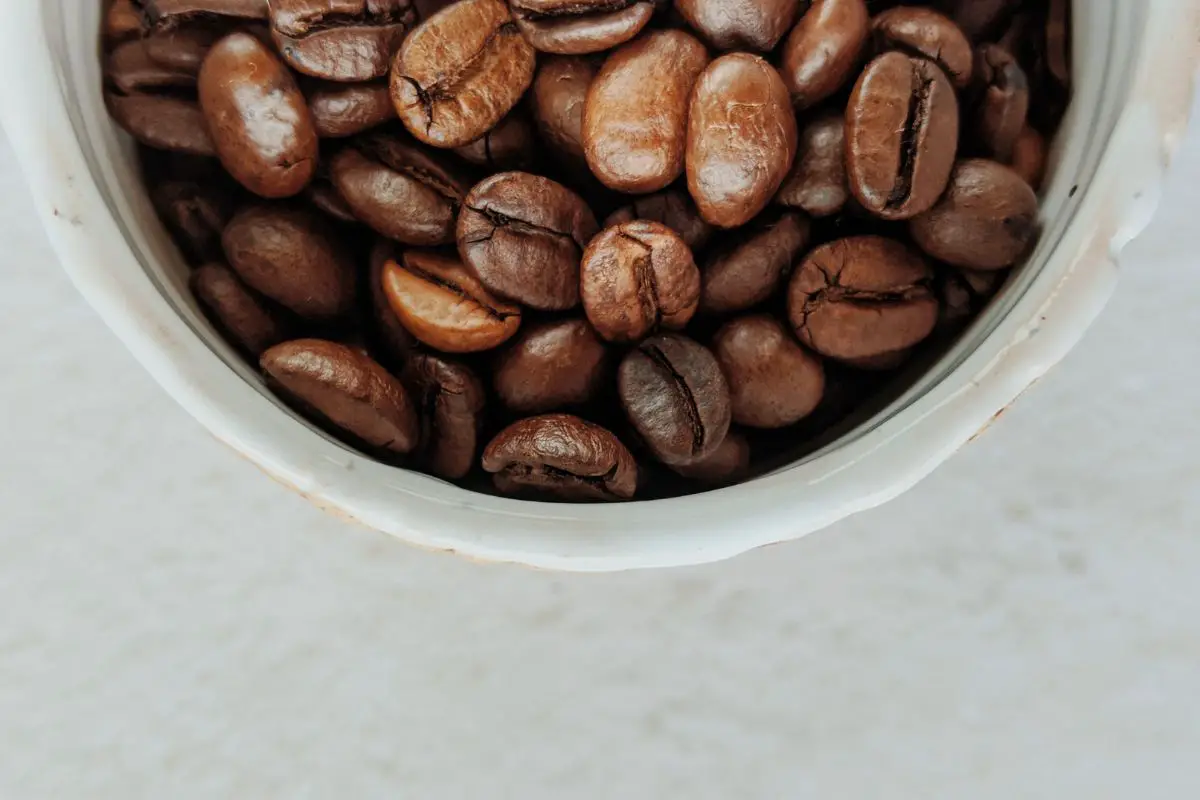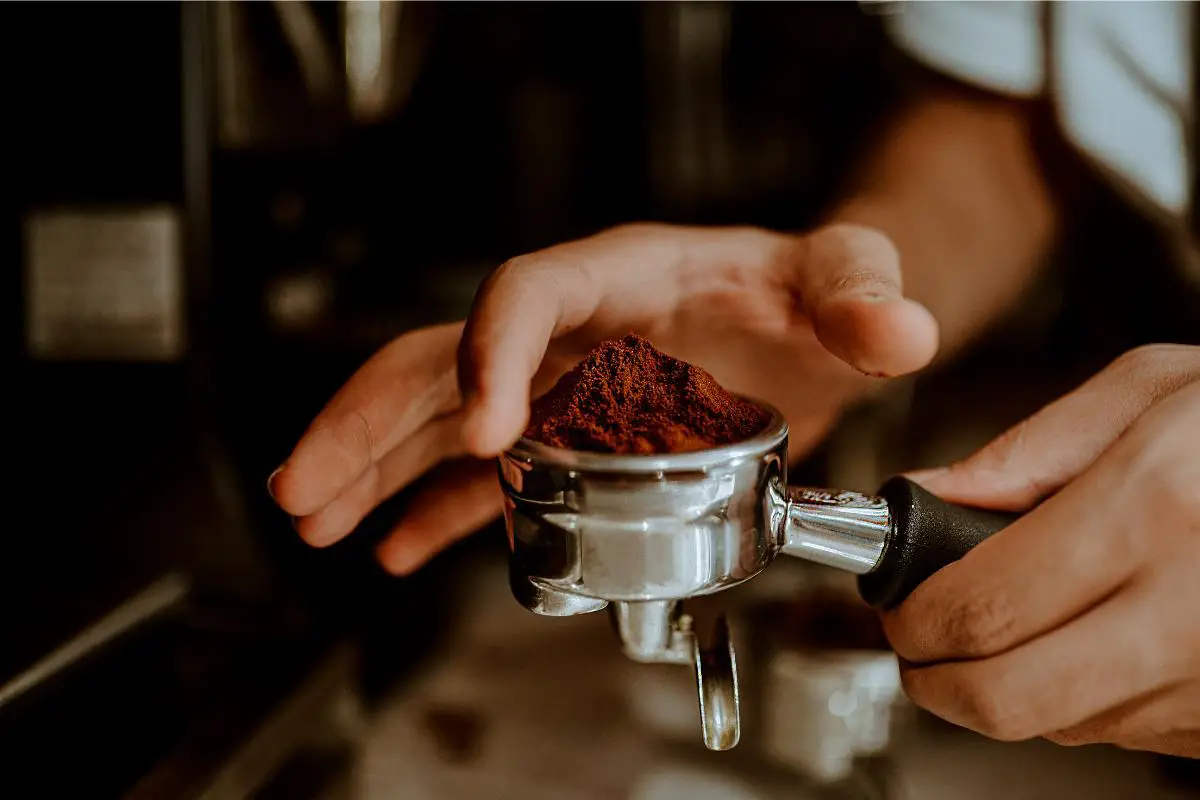One question that may have crossed your mind is whether or not coffee beans absorb moisture.
Coffee is a daily necessity for many people, and the beans that make your cup of joe are just as important as the brewing process.
In this blog post, we will explore the science behind the moisture content of coffee beans and how different factors can affect it.
From the ideal moisture content to the role of humidity, temperature, bean density, and age, we’ll delve into everything you need to know about moisture and coffee beans.
So, do coffee beans absorb moisture? Read on to find out.
Table of Contents
What is the Ideal Moisture Content for Coffee Beans?
Before we can discuss whether or not coffee beans absorb moisture, it’s important to understand the ideal moisture content for these beans.
The optimal moisture content for coffee beans is around 10-12%.
Any higher, and the beans may begin to spoil or grow mould.
On the other hand, if the moisture content is too low, the beans may become brittle and lose their flavour.
Do Coffee Beans Absorb Moisture?
Now, back to the main question: do coffee beans absorb moisture? The answer is yes, coffee beans can absorb moisture from the air.
This is why it’s important to store your beans in an airtight container, away from humid environments.
However, it’s worth noting that the moisture content of coffee beans can also be affected by the processing method used to prepare the beans for roasting.
For example, the wet process method involves soaking the beans in water to remove the outer layers of the bean, whereas the dry process method involves leaving the beans to dry in the sun.
The wet process can result in beans with a higher moisture content, whereas the dry process results in beans with a lower moisture content.
Factors That Affect the Moisture Content of Coffee Beans
There are several factors that can impact the moisture content of coffee beans, including:
1) Humidity
As mentioned earlier, the humidity of the environment in which the beans are stored can affect their moisture content.
If the air is particularly humid, the beans may absorb moisture from the air, leading to an increase in their moisture content.
2) Temperature
The temperature of the storage environment can also play a role in the moisture content of coffee beans.
Higher temperatures can cause the beans to release moisture, while lower temperatures can cause them to absorb moisture.

3) Bean density
The density of the beans can also affect their moisture content.
Denser beans tend to have a lower moisture content, as they are less able to absorb moisture from the air.
4) Age of the beans
Finally, the age of the beans can impact their moisture content.
As beans age, they tend to lose moisture, resulting in lower moisture content.
Can Ground Coffee Absorb Moisture?
Yes, ground coffee can absorb moisture from the air.
In fact, ground coffee is more susceptible to absorbing moisture than whole coffee beans because the surface area of the grounds is much larger.
This means that there is a more exposed surface area for the grounds to come into contact with the air and potentially absorb moisture.
Moisture can affect the flavour and quality of ground coffee, as it can cause the grounds to become stale and lose their flavour.
It’s best to use ground coffee within a few days of grinding to ensure that it stays fresh and retains its flavour.
How To Prevent Coffee Beans Absorbing Moisture?
There are a few steps you can take to prevent coffee beans from absorbing moisture:
- Store the beans in an airtight container: Airtight containers will help keep moisture out and prevent the beans from absorbing it from the air.
- Keep the beans in a cool, dry place: Humid environments can cause the beans to absorb moisture, so it’s best to store them in a cool, dry place with low humidity.
- Avoid exposing the beans to heat: High temperatures can cause the beans to release moisture, so it’s best to keep them away from heat sources.
- Use the beans within a few weeks of purchasing: The fresher the beans, the less likely they are to absorb moisture. It’s best to use the beans within a few weeks of purchasing to ensure that they stay fresh and flavorful.
- Consider using a desiccant packet: Desiccant packets are small packets filled with a moisture-absorbing material that can help keep the beans dry. Simply place a packet in the container with the beans to help prevent them from absorbing moisture.
By following these steps, you can help keep your coffee beans fresh and prevent them from absorbing moisture.
Can Coffee Beans Absorb Moisture F.A.Q’s

A. While it may seem like a good idea to store your coffee beans in the refrigerator or freezer to keep them fresh, this is actually not recommended.
The temperature fluctuations and humidity inside a fridge or freezer can cause the beans to absorb moisture, leading to an increase in their moisture content.
If your coffee beans have absorbed too much moisture, they may appear swollen or feel soft to the touch.
They may also have a musty or mouldy smell. If your beans exhibit any of these signs, it’s best to discard them and purchase a fresh batch.
A. While it’s convenient to store your coffee beans in the bag they came in, it’s not the best option for keeping them fresh.
The bag that your beans came in is likely not airtight which means that the beans can absorb moisture from the air.
To keep your beans fresh, it’s best to transfer them to an airtight container.
A. It’s generally not recommended to roast coffee beans with a high moisture content, as the excess moisture can cause the beans to steam rather than roast during the roasting process.
This can result in a lower-quality cup of coffee.
Conclusion
In conclusion, it is possible for coffee beans to absorb moisture from the air, but there are several factors that can impact their moisture content.
To ensure that your beans are stored at the optimal moisture content, it’s important to keep them in an airtight container and store them in a cool, dry place.
Additionally, the processing method used to prepare the beans and the density, age, and temperature of the beans can also affect their moisture content.
By understanding these factors, you can help ensure that your coffee beans are always of the highest quality.
If you enjoyed this article, read more like this by checking out our Specialty Coffee Beginners Guides.




